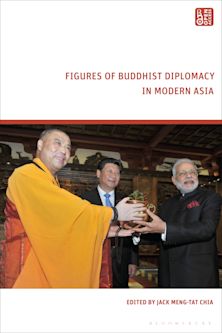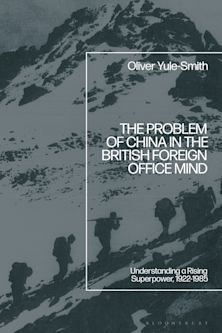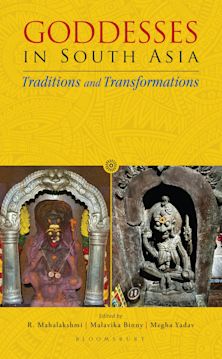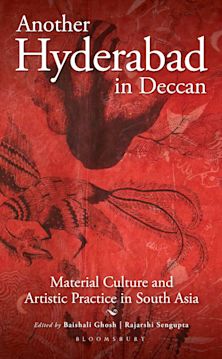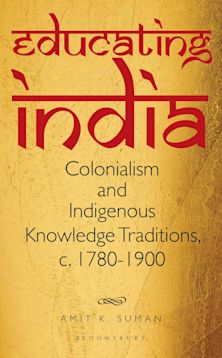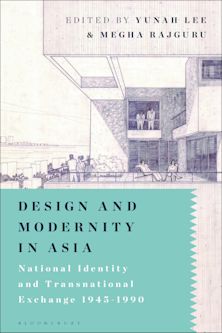- Home
- ACADEMIC
- History
- Asian History
- Kazakhstan in the Making
Kazakhstan in the Making
Legitimacy, Symbols, and Social Changes
Marlene Laruelle (Anthology Editor) , Ulan Bigozhin (Contributor) , Alima Bissenova (Contributor) , Douglas Blum (Contributor) , Alexander C. Diener (Contributor) , Natalie Koch (Contributor) , Diana T. Kudaibergenova (Contributor) , Marlene Laruelle (Contributor) , Mateusz Laszczkowski (Contributor) , Sebastien Peyrouse (Contributor) , Megan Rancier (Contributor) , Assel Tutumlu (Contributor) , Wendell Schwab (Contributor) , Kristopher White (Contributor)
Kazakhstan in the Making
Legitimacy, Symbols, and Social Changes
Marlene Laruelle (Anthology Editor) , Ulan Bigozhin (Contributor) , Alima Bissenova (Contributor) , Douglas Blum (Contributor) , Alexander C. Diener (Contributor) , Natalie Koch (Contributor) , Diana T. Kudaibergenova (Contributor) , Marlene Laruelle (Contributor) , Mateusz Laszczkowski (Contributor) , Sebastien Peyrouse (Contributor) , Megan Rancier (Contributor) , Assel Tutumlu (Contributor) , Wendell Schwab (Contributor) , Kristopher White (Contributor)
You must sign in to add this item to your wishlist. Please sign in or create an account
Description
Kazakhstan is one of the best-known success stories of Central Asia, perhaps even of the entire Eurasian space. It boasts a fast growing economy—at least until the 2014 crisis—a strategic location between Russia, China, and the rest of Central Asia, and a regime with far-reaching branding strategies. But the country also faces weak institutionalization, patronage, authoritarianism, and regional gaps in socioeconomic standards that challenge the stability and prosperity narrative advanced by the aging President Nursultan Nazarbayev. This policy-oriented analysis does not tell us a lot about the Kazakhstani society itself and its transformations.
This edited volume returns Kazakhstan to the scholarly spotlight, offering new, multidisciplinary insights into the country’s recent evolution, drawing from political science, anthropology, and sociology. It looks at the regime’s sophisticated legitimacy mechanisms and ongoing quest for popular support. It analyzes the country’s fast changing national identity and the delicate balance between the Kazakh majority and the Russian-speaking minorities. It explores how the society negotiates deep social transformations and generates new hybrid, local and global, cultural references.
Table of Contents
Part I: The State: Ruling Mechanisms and Symbols
Chapter 1: The Rule by Law: Negotiating Stability in Kazakhstan, Assel Tutumlu
Chapter 2: The Kazakh Neopatrimonial Regime: Balancing Uncertainties among the Family, Oligarchs, and Technocrats, Sebastien Peyrouse
Chapter 3: Shrek Meets the President: Magical Authoritarianism in a Fairy-Tale City, Mateusz Laszczkowski
Chapter 4: Shrine and Neopatrimonialism in southern Kazakhstan, Wendell Schwab and Ulan Bigozhin
Part II: The Nation: Conflicting Legitimacies and Repertoires
Chapter 5: Nationalizing Elites and Regimes: Nation-building in Post-Soviet Authoritarian and Democratic Contexts, Diana T. Kudaibergenova
Chapter 6: Imagining Kazakhstani-stan: Negotiations of Homeland and Titular-Nationality, Alexander C. Diener
Chapter 7: Which Future for National-Patriots?: The Landscape of Kazakh Nationalism, Marlene Laruelle
Chapter 8: Cowboys, Gangsters, and Rural Bumpkins: Constructing the “Other” in Kazakhstan’s “Texas,” Natalie R. Koch and Kristopher White
Part III: The Society: Negotiating Cultural Changes
Chapter 9: Islam in Good Taste: About Suitable Forms of Public Religiosity, Alima Bissenova
Chapter 10: The “Spirit of Tengri’: Spirituality, Nationalism, and Emerging Trends in Kazakh Ethno-Pop, Megan Rancier
Chapter 11: Return Migration from the United States: Exploring the Dynamics of Cultural Change in Kazakhstan, Douglas Blum
Product details
| Published | Nov 21 2016 |
|---|---|
| Format | Ebook (Epub & Mobi) |
| Edition | 1st |
| Extent | 304 |
| ISBN | 9781498525480 |
| Imprint | Lexington Books |
| Illustrations | 3 b/w illustrations; 14 b/w photos; 2 maps; 7 tables; 4 graphs |
| Series | Contemporary Central Asia: Societies, Politics, and Cultures |
| Publisher | Bloomsbury Publishing |
About the contributors
Reviews
-
This book fills a gap in the literature by providing a scholarly depth in tandem with a multidisciplinary outlook on Kazakhstani politics that accounts for important socio-political drivers, while looking beyond the country’s resource bounty that preoccupies many studies on Kazakhstan. As editor, Marlene Laruelle has succeeded in bringing together a strong cast of contributors, including well-established and talented emerging scholars from both Kazakhstan and the wider world. A range of audiences will be well served by this book: on the one hand, it provides those new to the study of Kazakhstan with a clear introduction to the central themes and issues animating contemporary Kazakhstan political life; on the other hand, those more familiar with the country and its people will also find the empirical detail insightful.... Although the volume brings together contributions on a wider range of topics and employing diverse methodological approaches, it retains an admirable degree of coherence as all chapters work to address core issues salient to understanding the political dynamics of today’s Kazakhstan.... Readers will get a taste of the diverse dynamics of Kazakhstan’s contemporary development, and some satisfyingly detailed insights into facets of this geopolitically significant but as yet under-researched state.
Europe-Asia Studies
-
This edited volume contains eleven different contributions offering new perspectives on the emerging research about Kazakhstan. . . . The book effectively explains the patterns of identity, nationhood and governance that have evolved since Kazakhstan’s independence in 1991.
The Muslim World Book Review
-
This book brings together the best of recent Central Asian scholarship to help analysts consider what happens next. Like other volumes in the Contemporary Central Asia series, it is an essential reference for scholars, students, and policy makers and will be a valuable resource for years.
Slavic Review
-
Marlene Laruelle has assembled a notable set of scholars to dig deep into the well of the multi-voiced and contentious process of post-Soviet nation-making in Kazakhstan. This volume traverses a journey across the vast Kazakh steppe and provides new interpretive frames to understand the complex and diverse set of phenomena associated with the development of the state, nation, and society of Kazakhstan. From accounts of neopatrimonial relations to the symbolic power of the fairy tale city of Astana and the role of ethno-pop in promoting traditional Kazakh values in an interconnected and globalized world, the contributors demonstrate an impressive command of the subject and draw on an extensive range of original empirical material. These essays will pique the interest of readers wanting to understand the politics and society of contemporary Kazakhstan, but also those with a broader fascination with the process of state and nation-building in the Eurasian region and beyond.
Rico Isaacs, Oxford Brookes University
-
Large, varied, and rapidly changing, Kazakhstan can sometimes seem inscrutable. In fact, all we need to understand this country of great cultural, economic, and political importance is the excellent research conducted by scholars at the top of their respective fields. Kazakhstan in the Making is the most wide-ranging, comprehensive, and welcome addition to the literature we have seen in many years.
Edward Schatz, University of Toronto












